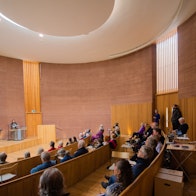
Sustainability and Adaptation in the Built Environment
Master of Science | PG Diploma
*This course will not be offered for new students from September 2022 entry onwards. This page will be accessible for current students only.
*Please be aware that this page is provided for students currently completing the Sustainability and Adaptation in the Built Environment programme. This programme will not be offered for new students for September 2022 entry onwards.
Following our 5-year courses review with the University of East London, we wish to merge Sustainability and Adaptation in the Built Environment with the Green Building programme, so the Sustainability and Adaptation in the Built Environment programme is to be withdrawn. Popular features from both of the above courses are to be combined into our new Green Building programme.
New versions of the modules offered on Sustainability and Adaptation in the Built Environment can also be taken on our new MSc Sustainability and Adaptation along with further optional modules in behaviour change, ecology and sustainable food. You might also be interested in our MSc Sustainability in Energy Provision and Demand Management. You can also explore our other MSc programmes here.
Key areas of study
Climate change poses two key challenges to modern architecture: how can buildings be made sustainable, and how can they be designed to take account of the effects of climate change?
This course uses the concepts of sustainability and adaptation to frame an understanding of the built environment at the community and individual buildings level.
Key building issues covered in the course include: energy management and low energy design, sustainable materials, environmental performance assessment and energy provision. Students may further pursue interests in urban design, communities, ecology, water, ecological sanitation, politics and economics.
From spatial master-planning to politics and economics, get to the heart of how the environment must be brought into decision-making. Develop your ability to evaluate complex issues and become a self-reflective practitioner or researcher who can communicate evidence and conclusions clearly to specialist and non-specialist audiences.
Modules
When studying this course as an MSc you will need to study the 30 credit Sustainability and Adaptation: Concepts and Planning module plus 2 additional core modules and 4 optional modules before undertaking a dissertation. Please click on the module descriptions below for information about each module.
Core modules
Sustainability and Adaptation: Concepts and PlanningThis 30-credit core module takes place in two parts. The first starts in September and the second in November and both must be taken at the beginning of your course, no matter which route you take through your studies.
In part one, we will contextualise sustainability and transformational adaptation in view of current environmental changes, exploring the interconnectedness of the factors involved.
There will be an in-depth look at the wider implications of transformational adaptation on social structures, land use, trade, resource management, energy provision, governance, health and economic systems through a critical exploration of the primary considerations related to sustainability and environmental change.
In part two, you will experience transformational adaptation planning through a facilitated, self-reflective practical team exercise, and form a deep appreciation and holistic understanding of adaptation transformation planning.
You will develop the skills and knowledge needed to assess risks and make informed decisions, despite the uncertainties that come with a changing climate.
Read more about this module for courses awarded by Liverpool John Moores University: 7501CATSCI -Sustainability and Adaptation Concepts and Planning - LJMU (Pre September 2024)
What’s it like to study at CAT? Read more about the teaching and learning experience.
This module involves a systematic evaluation of the environmental impacts and the wider social and health implications of building materials, looking at the use, performance and usability of different materials.
You will gain a thorough appreciation of how environmentally sustainable materials offer creative opportunities for the use and development of high quality, healthy, effective, and long-lasting products that can enhance rather than damage ecosystems. You will learn about the advantages and disadvantages of different materials, and look at how to use sustainable options in the most effective ways.
We explore issues around the availability, cost, physical properties, construction methods and general perceptions of environmentally responsive materials, looking at ease of use, mainstream acceptance, design limitations, logistical considerations and economic viability.
Students joining us on-site for the study visit will get hands-on experience with sustainable building materials in this highly practical module, working with rammed earth, cob, hemp and lime, timber and straw bales.
This is a 15 credit module.
Read more about this module for courses awarded by the University of East London: EV7110 – Sustainable Materials in the Built Environment UEL (After September 2022)
Read more about this module for courses awarded by Liverpool John Moores University 7507CATSCI - Sustainable Materials in the Built Environment - LJMU (35017 downloads )
What’s it like to study at CAT? Read more about the teaching and learning experience.
The aim of this module is to develop a deep understanding of the principles and consequences of energy flows in buildings in terms of the materials used, the building’s orientation and the local climatic conditions.
You will gain a sound appreciation of how energy transfers in buildings can be manually calculated, modelled and simulated in computer modelling suites, and how this is vital to help optimise the design for energy efficiency.
You will be able to further hone a systematic, holistic, multidisciplinary and analytical approach to the critical appraisal of passive and energy efficiency design (including Passivhaus designs), heat and moisture flows in new builds and renovations.
This is a 15 credit module.
Find out more about this module: EV7107 - Energy Flows in Buildings Part B UEL (Pre September 2022)
What’s it like to study at CAT? Read more about the teaching and learning experience.
The dissertation involves designing, investigating, and presenting an extended and independently conceived piece of research on a topic of your choosing within a field of study relevant to your course.
During the module you will demonstrate the ability to explore a relevant research topic in-depth, with appropriate research methodology, displaying creativity and skills in critical analysis. Students will submit a dissertation (18,000 words maximum) at the end of the module. For students interested in focusing on sustainable building or design, part of the dissertation could also involve a design element.
Before beginning the module, students will be required to have gained approval for a Research Proposal (RP) on a subject from within the study area of their Programme, in consultation with one or more members of the teaching team and as a result of group discussions around initial ideas. The RP will be developed during the core ‘Applied Research Design’ module, which will cover research philosophy, approaches, strategy, design methods and analysis techniques.
Teaching and learning take place through tutorial-supported work on the preparation of this major piece of academic discourse. After an initial seminar group meeting involving other students, tuition is mainly on an individual basis.
This is a 60 credit module.
Read more about this module for courses awarded by the University of East London: EV7101 – Dissertation Module UEL (After September 2022)
Read more about the dissertation module for courses awarded by Liverpool John Moores University 7520CATSCI - Dissertation LJMU
What’s it like to study at CAT? Read more about the teaching and learning experience.
Optional modules
Energy Flows in Buildings – Part AIn this module you will learn about the complex nature of the interrelationships between occupant comfort, energy flows in buildings and energy efficient building design. Explore the theory and apply this in practice with expert-led practical workshops.
You will develop a systematic, holistic, multidisciplinary and analytical approach to the critical appraisal of energy efficient design, heat flows, and provision of thermal comfort with respect to the demands of climate change adaptation and the principles of sustainability.
This is a 15 credit module.
Find out more about this module: EV7106 - Energy Flows in Buildings Part A UEL (Pre September 2022)
What’s it like to study at CAT? Read more about the teaching and learning experience.
This module introduces students to roles of power, policy, agency and economic structures that produce crises in the context of the environment, and our responses to these crises.
Through a range of topics including political and economic tools for change, environmental justice and inequalities and environment and systems change across global, national, and local scale, you will study the theoretical underpinnings to understanding the importance of political and economic systems to transformational change.
The module takes an interdisciplinary, critical approach to examine how unequal power relations have been constructed, and their environmental and societal consequences. It will consider the societal consequences of unsustainable governance of nature and the built environment.
We will also draw on current and historic social and environmental debates and events to illustrate the application of a range of critical analytical approaches, such as political ecology, discourse, global political economics, and policy studies.
This is a 15 credit module.
Read more about this module for courses awarded by the University of East London: EV7131 – Introduction to Politics and Economics of Environment (After September 2022)
Read more about this module for courses awarded by Liverpool John Moores University: 7502CATSCI - Introduction to Politics and Economics of the Environment - LJMU
What’s it like to study at CAT? Read more about the teaching and learning experience.
This module will introduce students to the complexities of cities and communities and their local and global interconnections. You will examine how these conditions interact with the task to transform, reclaim, and reproduce the city and built environment amid global environmental change
The module will develop your knowledge of current research and discourse concerning adaptation planning and sustainability of cities and communities, and their place in current and future environmental contexts.
You will gain a thorough understanding of key elements, including infrastructures, maintenance issues, energy budgets, material flows, waste disposal, transportation and the social dynamics that underlie the development and management of communities and cities.
Following a critical assessment of the complex factors that influence the provision of sustainability and adaptation planning within urban and community focused environments, you will be able to recognise and rationalise the prospects for innovative research and practice for regeneration in the built environment.
This is a 15 credit module.
Read more about this module for courses awarded by the University of East London: EV7105 – Cities and Communities UEL
Read more about this module for courses awarded by Liverpool John Moores University: 7504CATSCI - Cities and Communities - LJMU
What’s it like to study at CAT? Read more about the teaching and learning experience.
This module takes an in-depth look at energy provision from the perspective of transformational sustainable adaptation and takes a holistic approach to assessing energy technologies and systems situated within larger social and economic perspectives.
Students will explore the technological aspects, functioning and practical considerations of different technologies for reducing energy demand and providing more energy via sustainable sources. You will also investigate resource potential (and limitation), maintenance needs, associated carbon emissions and the environmental impacts of the available renewable energy technologies.
You will also develop a critical appreciation of the balance of energy generation and energy use reduction requirements and how energy distribution constraints, storage, supply and demand management, efficiency improvements, market drivers, planning processes, governmental policy and financial support mechanisms can affect the uptake of sustainable energy technologies.
This is a 15 credit module.
Read more about this module for courses awarded by the University of East London: EV7108 – Energy Provision UEL (After September 2022)
Read more about this module for courses awarded by Liverpool John Moores University 7505CATSCI - Energy Provision - LJMU
What’s it like to study at CAT? Read more about the teaching and learning experience.
This module gives you an appreciation of the key roles played by species, populations and healthy ecosystems in the provision of essential tangible and intangible services to human society, as well as the need to ensure ecological integrity on appropriate scales.
It provides you with an understanding of the overriding roles of climate change and industrial expansion in imposing progressive change in ecosystem and resource management, and the imperative for sustainable adaptation.
We explore the environmental impacts of sourcing, management and disposal of material and water resources, the case for minimisation, wise use and reuse where appropriate in order to function within resource, ecological and societal constraints, and the lessons to be learned from nature in resource design and processing.
It will enable you to comprehend the varied impacts of land use on environmental quality, biodiversity and ecosystem service provision, including industrial, domestic and agricultural wastes and their management; and to recognise the inherent lack of sustainability in modern, centralised food production and the necessity for ecologically-designed agriculture.
This is a 15 credit module.
Read more about this module for courses awarded by Liverpool John Moores University 7506CATSCI - Ecosystem Services Land use and Waste Management - LJMU (Pre September 2024)
What’s it like to study at CAT? Read more about the teaching and learning experience.
This project is designed to deepen your knowledge and understanding of a specialist subject within your chosen field of study.
It involves you in analysing complex evidence generated through the Applied Project, and in developing critical responses to existing theoretical discourses, methodologies or practices within your chosen subject.
This is a practical student-led project and report that will include statistical analyses of ongoing projects. It may take the form of, for example, a case study scenario exercise or a design, fabrication, experimentation and testing exercise.
This is a 15 credit module.
Read more about this module for courses awarded by Liverpool John Moores University 7508CATSCI - Applied Project - LJMU
Based on a project that you are undertaking in practice, for example in your workplace or community, this module allows you to deepen your knowledge and understanding of a specialist subject within your chosen field of study.
You will undertake analysis of complex evidence and develop critical responses to existing theoretical discourses, methodologies or practices within your chosen specialist area.
This is a 15 credit module.
Read more about this module for courses awarded by Liverpool John Moores University 7509CATSCI - Work-based Project - LJMU
What’s it like to study at CAT? Read more about the teaching and learning experience.
Entry requirements
- We ask for a Bachelor’s degree or knowledge and skills equivalent to degree standard.
- IELTS 6.5 (or equivalent) is required for applicants whose first language is not English.
Fees and funding
The cost of studying one of our full MSc courses is £7,310 for Home Students or £8,720 for Overseas students. Please visit our Fees and Funding page to see the tuition fees for other study levels, additional fees and funding opportunities.
Why study at CAT?
Benefit from over 40 years’ sustainability experience
CAT is a world-leading eco-centre and a pioneer in researching and teaching practical solutions for sustainability, with over 40 years’ experience in low-impact building, energy efficiency, renewable energy, sustainable food production, natural resources management and more.
Immersive learning
The taught eight-week modules offer an immersive learning experience through lectures, talks, seminars and workshops delivered by our expert in-house staff, with specialist insights from visiting lecturers from industry and academia.
Practical sessions are part of the programme of module teaching weeks at CAT, allowing you to get hands-on with sustainable building materials and energy efficiency.
Many modules are shared with our other postgraduate courses, providing you with a rich learning experience with your peers.
Distance and blended learning
Students can decide on a module-by-module basis whether they want to study on-site or via distance. Allowing you more flexibility to fit study around your life and existing commitments.
Our distance learning resources are also available to students studying on-site. Students studying on-site or via distance will be able to interact and share ideas and expertise via the online learning environment and discussion apps, helping to create a richer learning environment.
Flexible study options
Courses can be studied full or part time and our courses structure allows you to choose the mode and level of study that suits you, helping you fit your studies around other commitments.
Full-time study at MSc level will allow you to complete the course in 18 months. Part-time study at MSc level will allow you to complete the course over a recommended 3 years.
Please be aware that this course will not be offered for new students for September 2022 entry onwards.


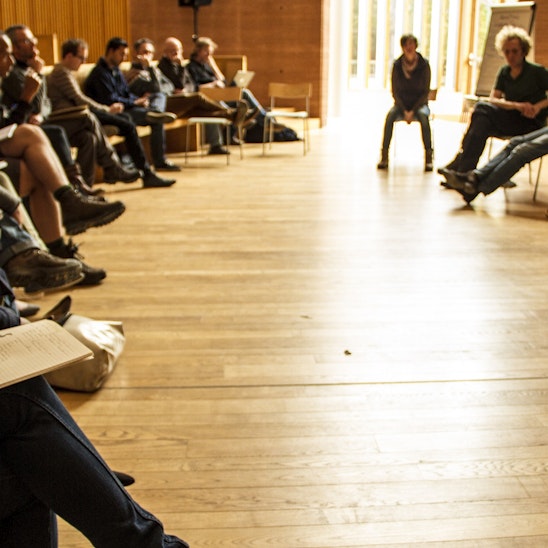
Virtual open days
Join tutors and lecturers on a Graduate School Virtual Open Day to find out more about studying one of our postgraduate courses.
Learn more about studying at CAT

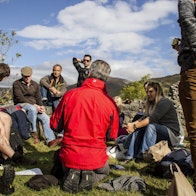
Study Experience
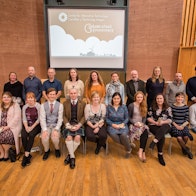
Graduate Community
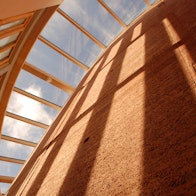
Frequently Asked Questions
Study with us
This course will not be offered for new students from September 2022 entry.
If you are a prospective student and have found this page then you may be interested in finding out more about our Green Building course which the above course merged with in early 2022.